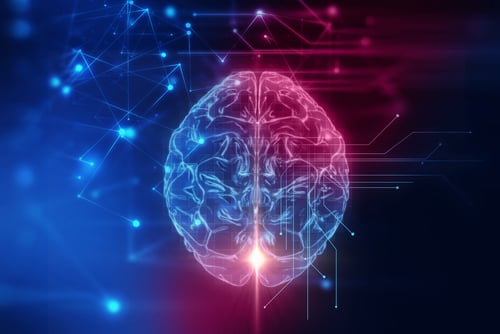The landscape of cybersecurity is constantly evolving, with emerging technologies reshaping the way we protect our digital infrastructure. One such technology that has garnered significant attention is artificial intelligence (AI).
As AI continues to advance, questions arise regarding its impact on cybersecurity and the role it plays in the hacker community. In a new report exploring the intersection of AI and cybersecurity, experts shared their insights and shed light on the evolving relationship between AI and hacking, and the ongoing importance of human creativity in the face of AI advancements.
Bugcrowd, a leading multi-solution crowdsourced cybersecurity platform, today released its highly-anticipated annual report, Inside the Mind of a Hacker. The comprehensive report offers valuable insights into the evolving world of hacking, the impact of generative AI on cybersecurity, and the perceptions and motivations of ethical hackers.
The impact of generative AI on hacking
One prominent theme in the report is the growing influence of generative AI in the hacking community. According to the survey, more than half of the respondents (55%) believe that generative AI already outperforms hackers or will do so within the next five years.
However, an overwhelming majority of hackers (72%) expressed confidence that generative AI cannot replicate the creativity of human hackers. This sentiment is echoed by Casey Ellis, Bugcrowd's founder and CTO, who states:
"There is a lot of speculation out there about the impact generative AI will have on security. I believe that cybersecurity is about to become less predictable. 91% of hackers surveyed believe that generative AI will increase their effectiveness, which implies that the adversary is innovating in similar ways. As such, tactics, techniques, and procedures are changing at a faster rate."
Automation and AI technologies have become crucial assets for hackers, enabling them to streamline tasks, analyze data, and enhance their problem-solving capabilities.
Hackers mentioned various applications of generative AI, including automating tasks (50%), analyzing data (48%), identifying vulnerabilities (36%), and conducting reconnaissance (33%).
Mike Heredia, Vice President, EMEA, at XM Cyber, highlights the necessity of automation and AI to stay ahead of cybercriminals:
"With 94% of ethical hackers confirming that they will start to use AI in the future our view is that this needs to happen NOW as a reaction to the highly evolved cybercrime industry that already uses automation at scale to penetrate organizations.
It's no surprise that 84% of hackers believe that less than half of companies understand their true risk of being breached as the majority or organizations do not currently leverage technology that continuously understands exploitable attack paths covering the entire attack surface—this is a major failing as organizations still over focus on detection and response technologies.
With the much hyped skills shortage in the industry, automation and adoption of AI can help plug the gaps and help defenders stay several steps ahead of the threat actors."
The role of human creativity and adaptability
While AI provides valuable support, the report underscores the irreplaceable value of human creativity and adaptability in the hacking domain.
Hackers recognize the importance of AI in automating tasks and analyzing data, yet firmly believe that AI will never surpass the capabilities of human hackers. This sentiment is shared by 45% of the surveyed hackers, while a third anticipate AI's increasing dominance within the next five years.
Craig Jones, Vice President of Security Operations at Ontinue, explains that AI augments hackers' abilities and provides a competitive edge but cannot replicate human ingenuity:
"The boundaries of AI's capabilities remain a topic of skepticism for hackers. A considerable majority, 72% to be precise, do not believe that AI will ever replicate their human creativity. While AI proves invaluable in automating tasks, analyzing data, and offering insights, hackers recognize the innate creativity and adaptability of human intellect as an irreplaceable asset in the realm of hacking.
Despite the reservations, it is noteworthy that 91% of hackers acknowledge the value of AI technologies in hacking and security research. AI's contributions have already made a tangible impact, and the majority of hackers anticipate its further increase in value going forward.
As the symbiotic relationship between hackers and AI continues to evolve, it is evident that AI has become an indispensable tool for hackers. It empowers them to automate processes, analyze data, and augment their problem-solving capabilities.
However, the human element, with its creativity and adaptability, remains a vital component that sets hackers apart. The future promises exciting developments as hackers and AI forge a path towards a safer and more secure digital landscape."
Bugcrowd's report offers valuable insights into the evolving world of hacking and the impact of generative AI on cybersecurity. The report emphasizes the irreplaceable role of human creativity and adaptability in the face of advancing AI technologies.
Collaboration, diversity, and the adoption of automation and AI are key factors in staying ahead of cyber threats. As the cybersecurity landscape continues to change, organizations must leverage these insights to build robust defenses and foster partnerships with ethical hackers to ensure a safer digital future.
Follow SecureWorld News for more stories related to cybersecurity.





